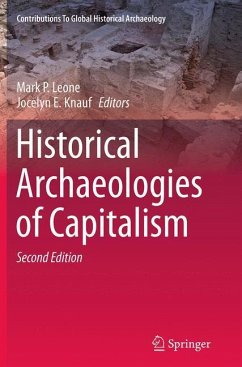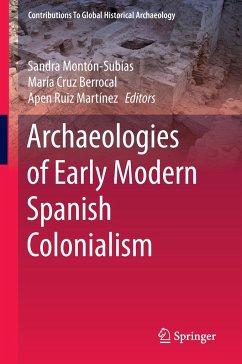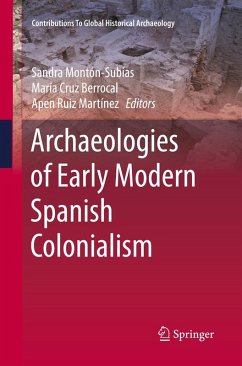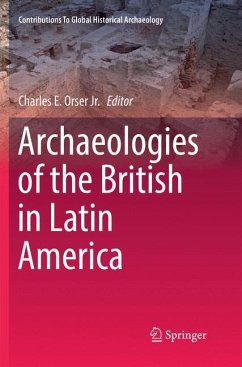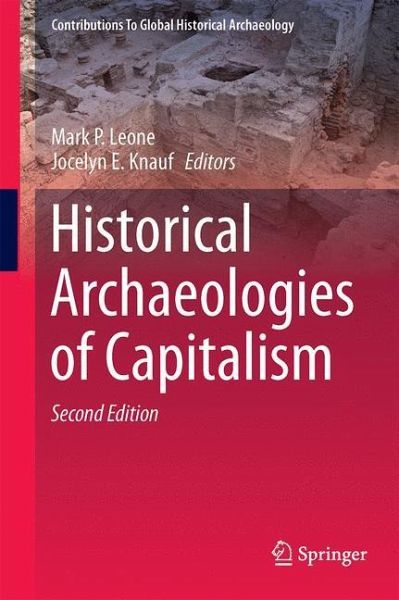
Historical Archaeologies of Capitalism

PAYBACK Punkte
19 °P sammeln!
This new edition of Historical Archaeologies of Capitalism shows where the study of capitalism leads archaeologists, scholars and activists. Essays cover a range of geographic, colonial and racist contexts around the Atlantic basin: Latin America and the Caribbean, North America, the North Atlantic, Europe and Africa. Here historical archaeologists use current capitalist theory to show the results of creating social classes, employing racism and beginning and expanding the global processes of resource exploitation. Scholars in this volume also do not avoid the present condition of people, disc...
This new edition of Historical Archaeologies of Capitalism shows where the study of capitalism leads archaeologists, scholars and activists. Essays cover a range of geographic, colonial and racist contexts around the Atlantic basin: Latin America and the Caribbean, North America, the North Atlantic, Europe and Africa. Here historical archaeologists use current capitalist theory to show the results of creating social classes, employing racism and beginning and expanding the global processes of resource exploitation. Scholars in this volume also do not avoid the present condition of people, discussing the lasting effects of capitalism's methods, resistance to them, their archaeology and their point to us now.
Chapters interpret capitalism in the past, the processes that make capitalist expansion possible, and the worldwide sale and reduction of people. Authors discuss how to record and interpret these. This book continues a global historical archaeology, one that is engaged with other disciplines, peoples and suppressed political and economic histories. Authors in this volume describe how new identities are created, reshaped and made to appear natural.
Chapters in this second edition also continue to address why historical archaeologists study capitalism and the relevance of this work, expanding on one of the important contributions of historical archaeologies of capitalism: critical archaeology.
Chapters interpret capitalism in the past, the processes that make capitalist expansion possible, and the worldwide sale and reduction of people. Authors discuss how to record and interpret these. This book continues a global historical archaeology, one that is engaged with other disciplines, peoples and suppressed political and economic histories. Authors in this volume describe how new identities are created, reshaped and made to appear natural.
Chapters in this second edition also continue to address why historical archaeologists study capitalism and the relevance of this work, expanding on one of the important contributions of historical archaeologies of capitalism: critical archaeology.





